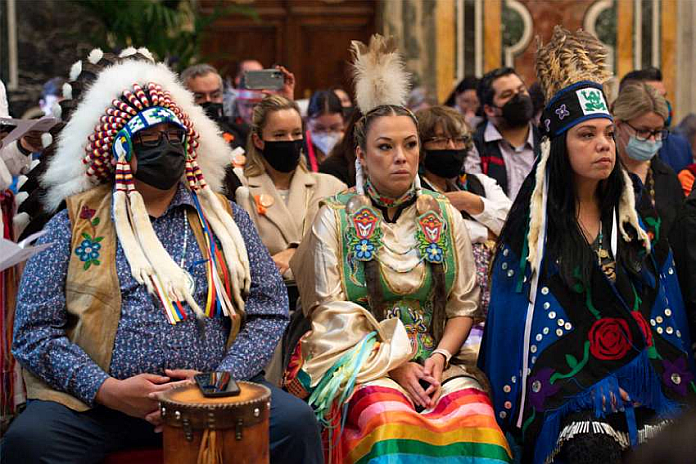TORONTO, Canada (The Catholic Register) – A First Nations group of residential school survivors has publicly put forward specific wording for a papal apology widely expected in Canada in July.
The Doctrine of Discovery, an apology on behalf of the whole Church and not just members of the Church, reparations, restitution and repatriation are all on the agenda, said the National Indian Residential School Circle of Survivors.
“I commit the Catholic Church to support the co-development of processes with First Nations, Metís and Inuit peoples for the renunciation of the Doctrine of Discovery, reparations, restitution, repatriation and real conciliation and the reconciliation of their respective rights,” reads part of the draft apology released by the group to media on June 15.
Residential school survivor and lawyer Ken Young told The Catholic Register the public release of the draft apology was in no way designed to embarrass Canada’s bishops. Young framed the draft as advice to a foreign dignitary preparing to speak in Canada. It would be unacceptable for any world leader to come to Canada and not take advice on delicate matters, he said.
“We’re not trying to embarrass anybody,” Young said. “We’re not telling the Pope what to say. The Pope will say what he wants to say.”
The goal is to find the right words to consolidate and propel the process of reconciliation forward, he stressed.
The National Indian Residential School Circle of Survivors draft apology names the government of Canada as primarily responsible for “the policy of assimilation” but holds the Church responsible for its “implementation” and an assumption that European culture and institutions are necessarily better, more civilized and the inevitable fruit of progress.
“This Eurocentric view can be traced to the papal bulls of 1455 (Romanus Pontifex) and 1493 (Inter Caetera),” reads the draft. The draft makes no mention of the unpromulgated 1537 bull Sublimus Dei which called European leaders to recognize that Indigenous people are “truly men” with inherent rights, or the 1538 papal brief Pastoral Officium, which excommunicated anyone who enslaved Indigneous people of the Americas or stole their land.
Canada’s Catholic bishops have consulted widely with various groups about the elements that could be covered in a papal apology, said spokesperson Neil MacCarthy.
Read the full story here.





